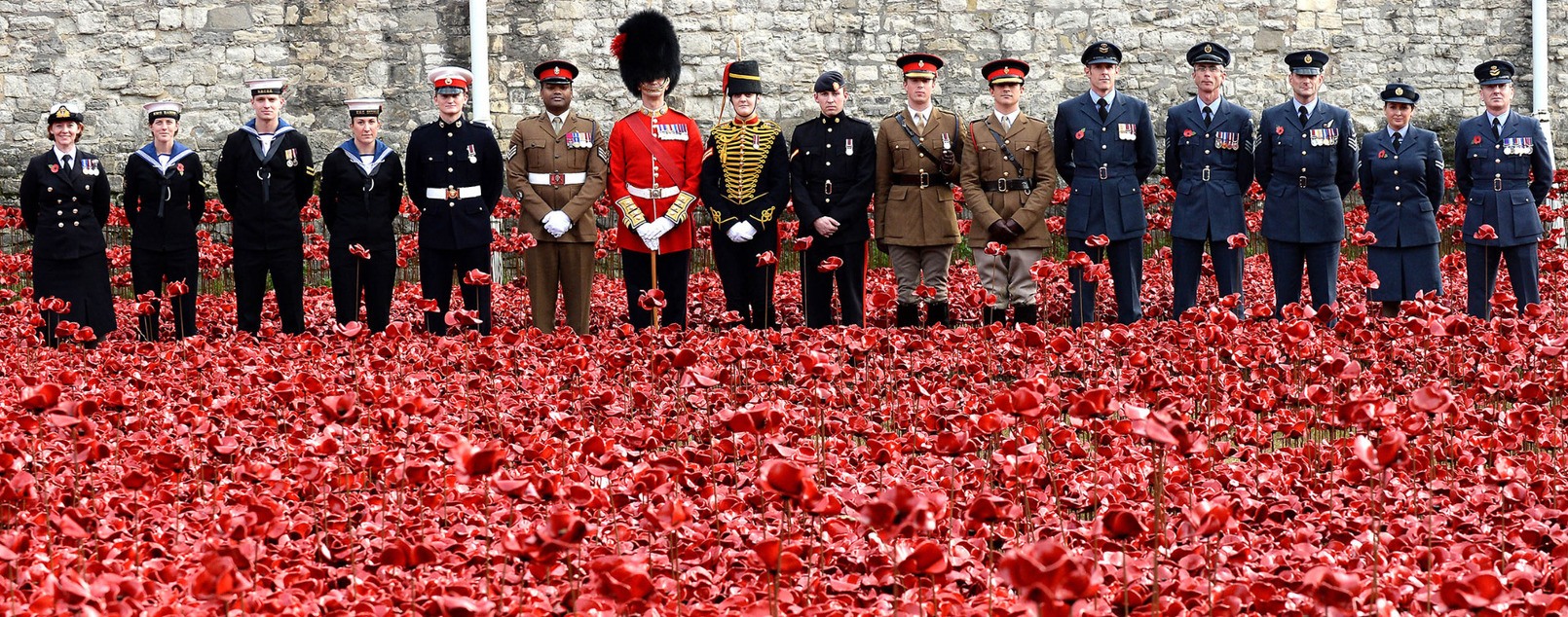An increasingly large number of people have decided that the traditional red poppy of remembrance either does not reflect the kind of commemoration they wish to participate in or, in some cases, that the poppy actively symbolises things they dislike about Britain’s past. Here I hope to summarise people’s objections (one of which in particular is understandable) and explain why, with respect, I will not be joining them.
The most serious allegation levelled against the poppy is that it somehow glorifies some of the less savoury episodes of Britain’s past. There is a logic to this; the British armed forces have in the past been responsible for the subjugation of various peoples all over the world. A high-profile example of such an objection came a few years ago when West Bromwich Albion player James McClean opted not to wear a poppy embroidered shirt due to his staunch Irish republican beliefs. However, much as I respect McClean’s freedom to commemorate as he wishes, I feel that the red poppy does not carry such connotations. For one thing it originates, as we all know, from the First World War. This was not only labelled ‘the war to end all wars’, a sentiment we can surely all support, but was a war in which Britain’s involvement cannot be seen as that of the aggressor. Furthermore, the tragic waste of life was in part fought by conscripts rather than professional soldiers, a fact which makes the poppy a potent symbol even for those who oppose war in principle. In addition, in the years since the First World War, Britain has largely fought wars against those who oppose our liberal democratic way of life, a way of life which from time to time unfortunately requires defending.
Secondly, some anti-poppy sentiment comes from the sense that it is a political symbol. This is entirely understandable given the way some seek to use it – we’ve all seen the worst excesses of tabloid hyperbole, which would have poppy wearing mandated by law from around mid-September. Such outrage clearly misses the point of voluntary remembrance and most people can see through it. It almost goes without saying that the poppy only means something if you wear it voluntarily. However, using this as grounds for not wearing the poppy I feel risks ceding the act of remembrance to divisive extremists. I believe we as a nation are better than that, and thus that the more people wear it, the less fringe groups will be able to claim a unifying symbol of remembrance for their own ends.
Ultimately, despite my personal views, such remembrance is a deeply personal matter. Few families were left untouched by the two world wars in the twentieth century, meaning many feel a strong connection to the cause of the November 11th commemorations. The fact we can disagree about the nature of our remembrance is in itself a kind of tribute to the fallen; but perhaps at times it would be preferable if we stopped petty arguments over the minutiae of the poppy symbol and used Remembrance Day as an opportunity to focus on what unites us as one nation – values which continue to inspire ordinary people to do extraordinary things to defend them.
Alex Passingham
(Image courtesy of Royal British Legion)

